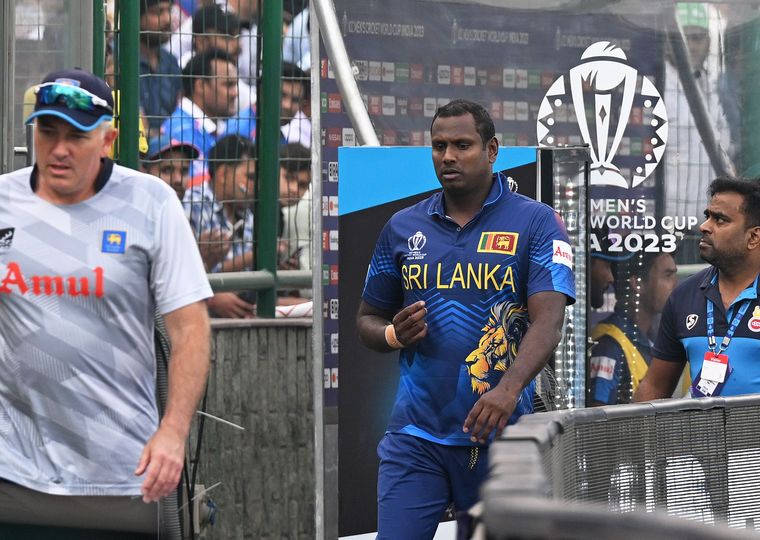
It was a sad day on a cricket field when this incident took centre stage. Angelo Mathews of Sri Lanka was timed out, going by the letter of the law. Not many in the right frame of mind seemed to accept it, but it was right according to the rulebook. This cannot be overruled. Whether the law is just is up to interpretation, but going by the order of the day, it was valid.
What was not, however, was what followed. Mathews calling Bangladesh a disgraceful country. Shakib Al Hasan saying everything is fair in war. Those were totally uncalled-for statements. This is not war. It’s a game. You play hard, fight even, but end of the day, leave it on the field of play – bitterness and everything. That did not happen. That was tragic.
“One of our fielders came to me and said if you appeal now he’ll be out,” Shakib said after the game. “Then I appealed and the umpires asked me if I’m serious or whether I am going to take it back. It’s in the laws. I don’t know if it’s right or wrong. I was at war and I had to take a decision to make sure my team wins. Right or wrong, there will be debates, but if it’s in the rules, I don’t mind taking those chances.”
Coming from the biggest cricket warrior of a country which is aspiring to be a powerful entity in the game, this was not acceptable. Shakib, your call was wrong. That you still went for it because it was a ‘war’ was a very sad indictment of the standards you stand for. You are a role model. Thousands look up to you. We can understand a mistake made in the heat of the moment, but not that cold-blooded justification post-match.
Hitherto a victim of what looked like an imprudent decision, Mathews hardly redeemed himself. Feeling undone by a controversial call is something. Saying that a country is disgraceful is unbecoming of a player who has set fantastic standards. Mathews is one of the game’s heroes, a true champion of a player. To see him say these things was not what cricket fans wanted.
“I don’t know where the common sense went,” he said. “Obviously, (it was) disgraceful from Shakib and Bangladesh. If they want to play cricket like that, I think there is something wrong drastically. Just disgraceful. Up to today, I had a lot of respect for Shakib and Bangladesh.”
Matthews did not stop there. “There was no common sense at that moment. This is the lowest an opposition team stooped to in my 15-year international career. It was Bangladesh, that’s why it happened. I don’t think any other team would’ve done it.”
That was unbecoming of a former international captain. There was reason for him to feel wronged, but to say “it was Bangladesh, that’s why it happened” was downright disgraceful. It’s not clear what kind of diplomatic repercussions this will have, but this was not acceptable. One cannot castigate a country if he feels undone by an individual.
This was cricket at its lowest ebb. Some altercation is acceptable. It happens and makes sports an enjoyable spectacle. This kind of slander-mongering by two of the most venerated figures of the game on the subcontinent ruined that aspect. It’s a game that we want to see. Not messages of hatred that can ruin international relations and spoil a sporting atmosphere.
And the match officials were clear about how they perceived the incident. “As a batsman you need to make sure all your equipment is in place,” said Adrian Holdstock, the fourth umpire. “You have to be ready to receive the ball in two minutes, not just take your guard. So technically you need to be in place after around 15 seconds so you can get ready to receive the ball.”
That was it. Whether one likes it or not, when the playing conditions have been accepted by all the teams before a tournament, they have to be respected. Yes, something may not please everybody, but spreading bitterness after an incident does not do anybody any good. Cricket lost in the bargain. Courtney Walsh, who potentially sacrificed a place in a World Cup semi-final by refusing to run out Saleem Jaffar in the first World Cup held in Asia (1987) must have looked at this with huge sadness.



